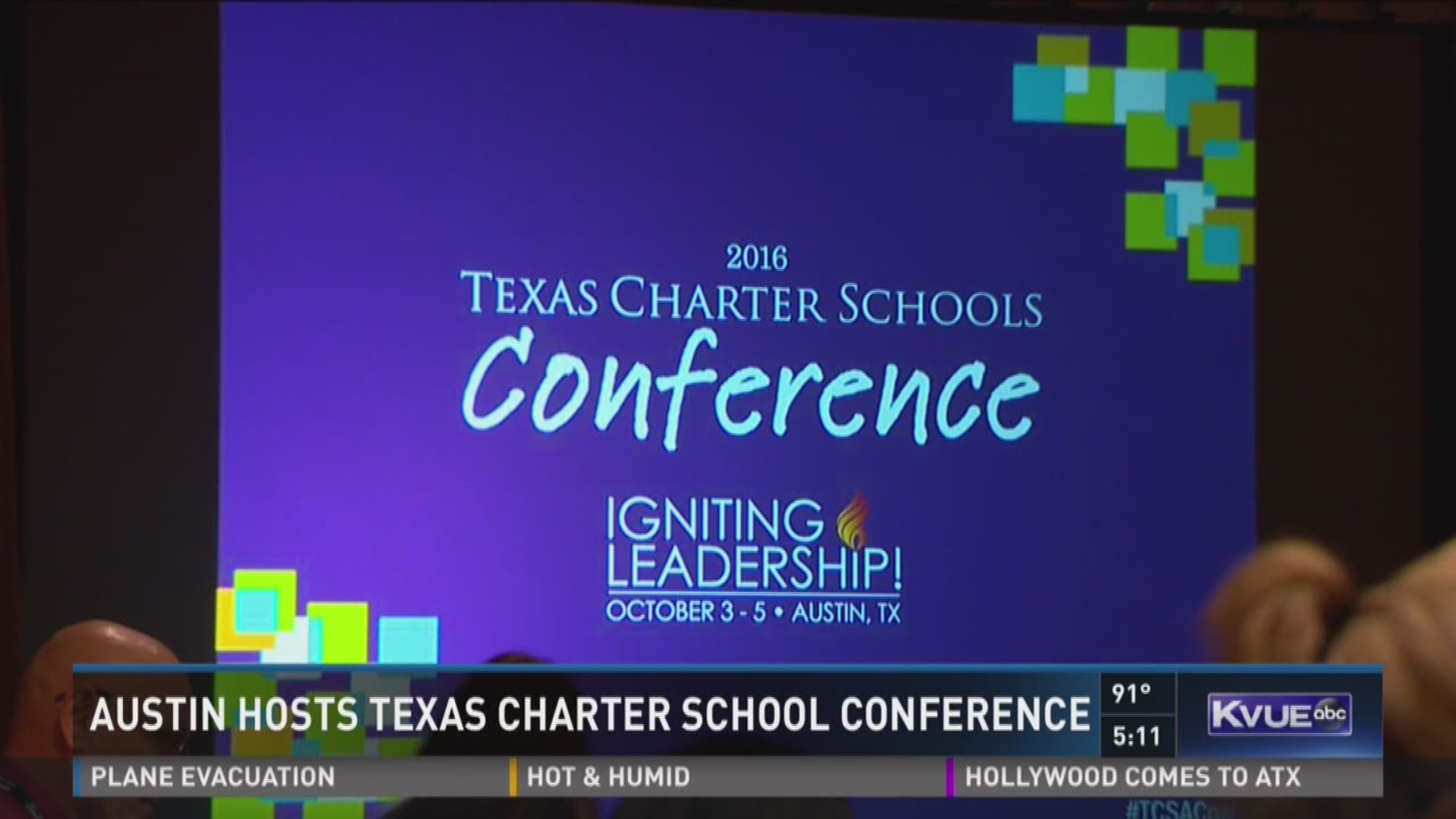Sixteen-hundred educators gathered in Austin for the largest Texas Charter School Conference to date. They were there to discuss and learn techniques to improve the quality of their schools and achievement of their students because one thing is clear, charter schools are in demand in Texas.
"There's 250,000 kids attending charter schools now, there's another 130,000 kids last year on a wait list," said David Dunn, Executive Director of the Texas Charter Schools Association.
Dunn said enrollment in Texas charter schools over the past 10 years has increased by 13-percent a year compared to traditional public school which increased two percent. The demand for charter schools can be seen in Austin where from 2012 to 2014, Austin Independent School District lost 2,000 students to charter schools.
"So, charter schools are public schools," explained Dunn. "They're tuition-free, open enrollment, there's no selection criteria in entering a charter school, fully funded by the state of Texas. Essentially the charter school bargain is charter schools have some additional flexibility with greater accountability."
That flexibility comes in the schedule of the school year and day and the hiring and firing of faculty. Charter schools don't have to abide by state certification requirements when hiring teachers, so they can bring experts in a field into the classroom. Most charter schools have focuses, such as fine arts, STEM, college preparatory or credit recovery.
While charter schools are subject to same financial, academic standards and standardized testing as traditional schools, missing those marks come with stiffer punishments than traditional public schools.
"If a charter school fails to meet either financial or academic standards three years in a row, their charter's revoked, that school is shut down," said Dunn.
It's a risk the educators say they are willing to take for the benefit of the students.
"The traditional school system has failed to meet the needs of the community. As a result, there's a significant achievement gap between African American, white and wealthy students. So we need to do what we can to mitigate that. Here in Texas, you have some of the highest performing charter schools in the country," said Dr. Steve Perry.
Perry is a renowned educator, the founder of Capital Preparatory Schools and an author. He served as a keynote speaker during the conference. He credits the success of charter schools to parents desires for their children to succeed.
"In the beginning when charter schools were first brought in, people said parents from disadvantaged backgrounds wouldn't know which schools to chose but then they found out just because somebody's poor doesn't mean they're uneducated or unintelligent."
He noted of the 10 highest ranking high schools in Texas, four of them are charter schools.
"You can't take the water and put it back in the cup," said Perry. "The fact is that parents in Texas, minority parents and poor parents as well as white parents and middle-class parents, they're having the same conversation, 'where are you sending your child to school this year?' Which is revelatory. Before, you needed to have money to do that, but with 130,000 children, 130,000 children in Texas on a waiting list, 130,000 who are saying they want access to a charter school, you can't keep saying no to their parents. They won't hear it."
Still, charter schools have their challenges and the largest is funding. Dunn said the state gives charter schools $1,000 less per student and doesn't provide any money for facilities so the schools make cuts in certain programs or pay teachers less so they can pay their mortgages.
Part of the conversation at the conference is how to approach lawmakers in the upcoming session to change that.

